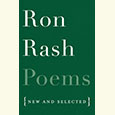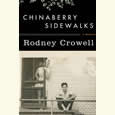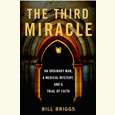A Mystery Set to Music
Parton and Patterson tell a Nashville story in Run, Rose, Run
It’s a book. It’s an album. It’s a Spotify “bookcast.” And its movie potential is obvious. Run, Rose, Run, a collaboration by Dolly Parton and James Patterson, juggernauts in their respective lanes of music and publishing, promises to be a multimedia steamroller itself.
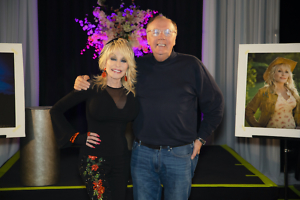 Print journalists avoid superlatives — ‘best,’ ‘most,’ ‘greatest’ — because someone, somewhere will always find an exception. The publishers of Run, Rose, Run appear to have no qualms on that point. The dust jacket of the new novel describes it as a “thriller from America’s most beloved superstar and its greatest storyteller.” Patterson’s claim to the title of “world’s bestselling author” can be quantified by his record-breaking book sales. As for Parton, a first-time nominee for the Rock & Roll Hall of Fame as of February, few would bother to argue about her status as “beloved.” When Tennessee’s living legend was listed among Time’s most influential people of 2021, Miley Cyrus wrote: “Have you ever met anyone who doesn’t love Dolly Parton? I never have.”
Print journalists avoid superlatives — ‘best,’ ‘most,’ ‘greatest’ — because someone, somewhere will always find an exception. The publishers of Run, Rose, Run appear to have no qualms on that point. The dust jacket of the new novel describes it as a “thriller from America’s most beloved superstar and its greatest storyteller.” Patterson’s claim to the title of “world’s bestselling author” can be quantified by his record-breaking book sales. As for Parton, a first-time nominee for the Rock & Roll Hall of Fame as of February, few would bother to argue about her status as “beloved.” When Tennessee’s living legend was listed among Time’s most influential people of 2021, Miley Cyrus wrote: “Have you ever met anyone who doesn’t love Dolly Parton? I never have.”
Patterson has written or co-written more than 300 books, including two political thrillers with former President Bill Clinton. He told The New York Times he flew to Nashville in February 2020 (a month before people stopped hopping on planes and taking in-person meetings) to propose a book project about a troubled and talented young singer in Music City to Parton, and she immediately began sending him both notes and song lyrics.
After a two-page prologue in which a desperate character named AnnieLee Keyes takes a literal leap from a Las Vegas balcony, Run, Rose, Run begins 11 months earlier, as the frightened young singer/songwriter escapes a mysterious menace in Texas by hitchhiking, then hijacking a ride to Nashville. Hoping her talent and relentless ambition will defy the odds and open a door to a deal on Music Row, she camps out by the Cumberland River and begs stage time at dive bars, starting by chance with a place owned by a newly retired country music superstar.
Significantly, that star is a woman, a character named Ruthanna Ryder. (Parton voices Ruthanna on the audio version of Run, Rose, Run, and no one will have a hard time imagining her in the movie role, if/when there is one.) A young studio musician smitten by AnnieLee’s voice and fiery temperament convinces Ruthanna to hear the new talent.
AnnieLee is told her beauty will provide entrée into the business, but that idea annoys her. Ruthanna has been there, suffered that. She tells the new girl in town about “Tomato-gate,” the real-life controversy that followed a Nashville radio consultant’s 2015 remark that male performers were the “lettuce” in a salad, women merely the “tomatoes.”
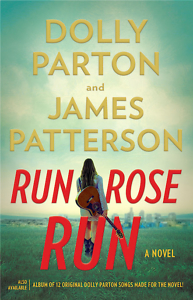 “Program directors have been telling their DJs not to play two women back-to-back for as long as there’s been radio,” Ruthanna says. “Labels didn’t think women could headline on the road or even make hit records.” When AnnieLee argues that Ruthanna clearly beat the system, the star replies: “But I had to work ten times as hard to get half the attention.” There’s also a reference to the revelation by The Tennessean in 2018 that women’s influence in country music actually declined after Tomato-gate. Ruthanna tells her protégé: … “when you were little, just learning how to sing along with the radio, women musicians sang about a third of the songs played on country stations. Now they’re barely above ten percent.”
“Program directors have been telling their DJs not to play two women back-to-back for as long as there’s been radio,” Ruthanna says. “Labels didn’t think women could headline on the road or even make hit records.” When AnnieLee argues that Ruthanna clearly beat the system, the star replies: “But I had to work ten times as hard to get half the attention.” There’s also a reference to the revelation by The Tennessean in 2018 that women’s influence in country music actually declined after Tomato-gate. Ruthanna tells her protégé: … “when you were little, just learning how to sing along with the radio, women musicians sang about a third of the songs played on country stations. Now they’re barely above ten percent.”
Who better than Parton to provide an insider view of the compromises women had to accept to make it in her industry? Long a powerbroker herself, Parton embraced the advantages created by what she has called her “hour-and-a-half glass figure” while making her own rules. As she told an interviewer in 2014: “When I think somebody’s acting more like a pimp than a manager, and I’m more of a prostitute than an artist, I always tell them where to put it.” Parton’s gift for elegantly stitching femininity and feminism together is neatly summed up in a moment in the 1980 comedy 9 to 5, when an office boss is trying to trap her character under his desk. She tells him sweetly: “I’ve been chased by swifter men than you, and I ain’t been caught yet.”
The novel’s AnnieLee also has stalkers, who are neither comical nor benign but brutal and relentless, and one of the book’s mysteries is her refusal to reveal why a small, young woman like herself — she resents being called short, as may the 5-foot-tall Parton — is their target.
The violence is more subdued than in Patterson’s standard thrillers, and the romance is G-rated. Parton’s insider knowledge about the country music biz is part of the fun of this ride, and AnnieLee also has a light side. “I’m one in a million – not one of a million,” she assures the bartender at her initial gig. When she gets her first professional blowout, the hair dryer whines “a D and a B flat simultaneously.”
Like Parton, the fictional young singer has a tendency to turn her thoughts into lyrics. They are streamed through the prose, and a songbook —with words to the 12 songs from the album attached to this project — serves as a 30-page addendum to the novel. Parton has written “over 3,000 songs,” her bio says, but the novel credits these tunes to Ruthanna Ryder and other characters in the book.

Formerly the books editor at The Commercial Appeal in Memphis, Peggy Burch writes for The Daily Memphian, where she was arts and culture editor. A member of the Humanities Tennessee Board of Directors, she holds a master’s degree in English literature from the University of Mississippi.
